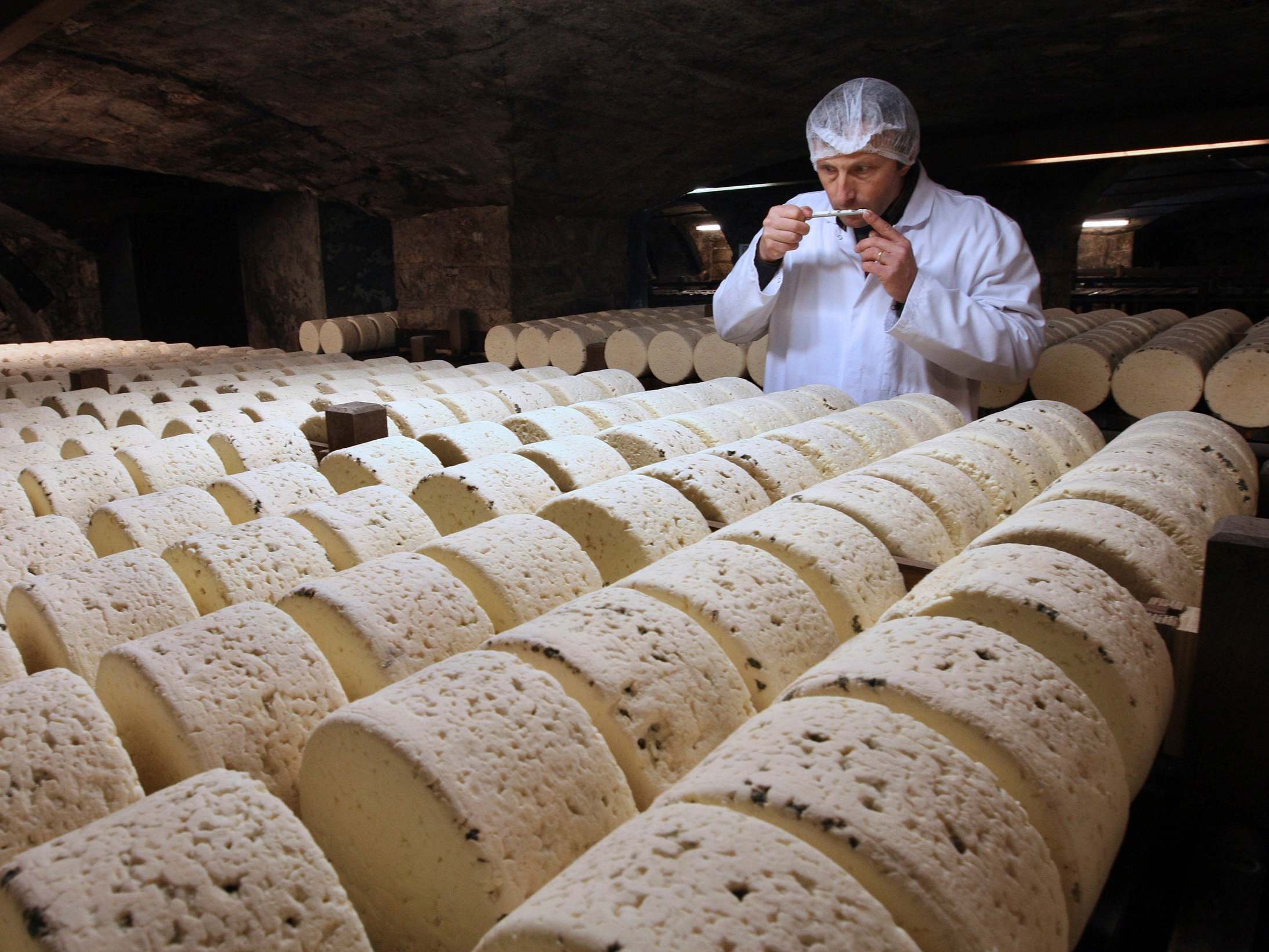Trump plans $2.4bn tariffs on French wine, cheese and handbags in new trade war with longstanding ally
Roquefort cheese, champagne and lipstick would be hit by charges under proposals announced in retaliation to France’s taxes on tech giants

Your support helps us to tell the story
From reproductive rights to climate change to Big Tech, The Independent is on the ground when the story is developing. Whether it's investigating the financials of Elon Musk's pro-Trump PAC or producing our latest documentary, 'The A Word', which shines a light on the American women fighting for reproductive rights, we know how important it is to parse out the facts from the messaging.
At such a critical moment in US history, we need reporters on the ground. Your donation allows us to keep sending journalists to speak to both sides of the story.
The Independent is trusted by Americans across the entire political spectrum. And unlike many other quality news outlets, we choose not to lock Americans out of our reporting and analysis with paywalls. We believe quality journalism should be available to everyone, paid for by those who can afford it.
Your support makes all the difference.Donald Trump’s administration has announced plans to charge tariffs on $2.4bn (£1.9bn) worth of French imports – including Roquefort cheese, handbags, lipstick and champagne – in retaliation for France’s tax on American tech giants such as Google, Amazon and Facebook.
The Office of the US Trade Representative claimed France’s new digital services tax discriminated against American companies. The office said on Monday it would accept public comments on the tariffs, which could hit 100 per cent, before a hearing on 7 January.
The French tax is designed to prevent tech firms from dodging payments by putting headquarters in low-tax European Union countries. It imposes a 3 per cent annual levy on the French revenue of digital companies with yearly global sales worth more than €750m (£640m) and revenue in France exceeding €25m.
American trade representative Robert Lighthizer said the administration’s retaliatory tariffs sent “a clear signal that the United States will take action against digital tax regimes that discriminate or otherwise impose undue burdens on US companies”.
The US also criticised the French tax for targeting companies’ revenue, rather than their profits, and for being retroactive.
France’s finance minister Bruno Le Maire, speaking on Radio Classique on Tuesday morning, said the European Union was “ready to issue a riposte” to the “unacceptable” tariffs on French goods.
Junior economy minister Agnes Pannier-Runacher said the government would be “pugnacious” over the latest US tariff threat and would not withdraw its digital tax plan.
“It is very clear that we do not need to go back on this, with regards to a topic that economically speaking makes sense,” she told Sud Radio on Tuesday morning.
The US trade representative investigated the French tax under the same provision of the Trade Act that the Trump administration used last year to probe China’s technology policies, leading to tariffs on more than $360bn worth of Chinese imports in the biggest trade war since the 1930s.
Mr Lighthizer’s agency has warned the US is also exploring whether to pursue investigations into digital taxes introduced by Austria, Italy and Turkey.
The decision to target France won bipartisan endorsement from Iowa Republican Chuck Grassley, who chairs the Senate Finance Committee, and Oregon Democrat Ron Wyden, the committee’s ranking member. In a joint statement, they assailed the French digital tax as “unreasonable, protectionist and discriminatory”.
The tech trade group ITI said it welcomed the administration’s retaliatory tariffs and urged continued negotiations on international taxes under the auspices of the Organisation for Economic Cooperation and Development.
The tariff announcement is likely to increase tension between the United States and Europe. The US is already readying tariffs on $7.5bn in EU imports over illegal subsidies for the European aircraft giant Airbus. The World Trade Organisation on Monday gave the US the green light to impose those levies, ruling that the EU had not complied with an order to end the subsidies.
In another reminder that Washington’s trade conflicts extend well beyond a 16-month standoff with China, Mr Trump on Monday also pledged to slap tariffs on steel and aluminium from Brazil and Argentina.
Both South American nations were among a group of American allies that the president exempted from steel and aluminium tariffs in March last year. Mr Trump’s threat to reverse that decision is the latest example of his unpredictable approach to trade policy.
The president accused Brazil and Argentina of manipulating their currencies to make their exports less expensive in world markets and gain an unfair trade advantage.
But the countries’ weak currencies reflect their weak economies. Brazil is contending with double-digit unemployment and economic stagnation after two years of deep recession, while Argentina is battling an economic crisis marked by runaway inflation, huge debts and widespread poverty.
Join our commenting forum
Join thought-provoking conversations, follow other Independent readers and see their replies
Comments